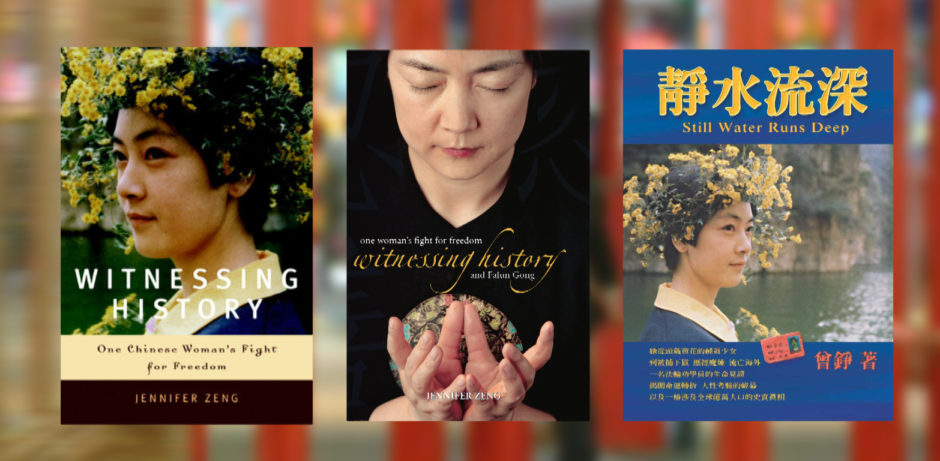December 3, 2018 Updated: December 3, 2018
WASHINGTON—Thirty-two of the world’s top experts on China, some of whom favored engaging the country before, have now joined forces in expressing their concerns about the Chinese Communist Party’s influence operations in the United States. They are calling for “constructive vigilance.”
Releasing a 200-page report, “Chinese Influence and American Interests: Promoting Constructive Vigilance,” at the Hoover Institution in Washington on Nov. 29, the authors write of the “disillusionment of an entire generation of China specialists” and a profound turnabout.
The report was assembled by Stanford University’s Hoover Institution and the Center on U.S.-China Relations at the Asia Society, and “comprises the most comprehensive study of China’s influence operations in the United States to date,” according to John Pomfret, a member of the Working Group on Chinese Influence Activities in the United States.
Larry Diamond, senior fellow at the Hoover Institution, who hosted the panel discussion at the report’s release, said in his opening remarks, “Around the world, countries have been waking up, not only to China’s rising global power, to its transparent and legitimate use—many countries do it around the world—of traditional soft power means, but to another form of power projection, which the National Endowment for Democracy has called ‘sharp power.’”
Diamond said former Australian Prime Minister Malcolm Turnbull’s words, “covert, coercive, and corrupting,” could best describe this form of power.
The report comprehensively examines the Chinese influence in Congress, state and local governments, the Chinese American community, universities, think tanks, media, corporations, and technology and research. It also gives long lists of Chinese influence-operation bureaucracies and Chinese influence activities in select countries, as well as a picture of the Chinese-language media landscape.
“While Americans are well acquainted with China’s quest for influence through the projection of diplomatic, economic, and military power, we are less aware of the myriad ways that Beijing has more recently been seeking cultural and informational influence, some of which could undermine our democratic processes,” the report says.
The report finds that “China’s influence activities have moved beyond their traditional United Front focus on diaspora communities to target a far broader range of sectors in Western societies, ranging from think tanks, universities, and media to state, local, and national government institutions.”
Among the report’s findings:
• “The Chinese Communist party-state leverages a broad range of party, state, and non-state actors to advance its influence-seeking objectives, and in recent years, it has significantly accelerated both its investment and the intensity of these efforts.”
• “In American federal and state politics, China seeks to identify and cultivate rising politicians.”
• “On university campuses, Confucius Institutes (CIs) provide the Chinese government access to US student bodies…With the direct support of the Chinese embassy and consulates, Chinese Students and Scholars Associations (CSSAs) sometimes report on and compromise the academic freedom of other Chinese students and American faculty on American campuses.”
• “At think tanks, researchers, scholars, and other staffers report regular attempts by Chinese diplomats and other intermediaries to influence their activities within the United States.”
• “In business, China often uses its companies to advance strategic objectives abroad, gaining political influence and access to critical infrastructure and technology.”
• “In the American media, China has all but eliminated the plethora of independent Chinese-language media outlets that once served Chinese American communities.’
• “Among the Chinese American community, China has long sought to influence—even silence—voices critical of the PRC or supportive of Taiwan.”
• “In the technology sector, China is engaged in a multifaceted effort to misappropriate technologies it deems critical to its economic and military success. Beyond economic espionage, theft, and the forced technology transfers that are required of many joint venture partnerships, China also captures much valuable new technology through its investments in U.S. high-tech companies and through its exploitation of the openness of American university labs.”
• “Around the world, China’s influence-seeking activities in the United States are mirrored in different forms in many other countries.”
Toward “constructive vigilance,” “the Working Group has sought to strike a balance between passivity and overreaction,” and promotes “transparency,” “integrity,” and “reciprocity” as key principles to deal with the challenges involved in relating to China.
Winston Lord, a former U.S. ambassador to China, said with all that Beijing has been doing, the Trump administration has correctly labeled the U.S.-China relation as “strategic competition.” He endorsed the administration’s “sensible” push back steps, including stepping up the maritime patrols in the East and South China Seas and Taiwan Strait, the BUILD program promoting development finance, working with Australia and Japan on development in the region, efforts to counter forced technology transfers, IP theft, subsidies of Chinese companies, and the advanced technology challenge, and other measures.
Most noteworthy in this report is that many of the contributors have been leading advocates of the policy of engagement—the belief that trade with China would lead to its becoming a freer, more democratic nation.
These include Lord, who accompanied Henry Kissinger on his secret 1971 trip to Beijing that paved the way for an new era for U.S.-China relations; Orville Schell, a longtime China observer, author, journalist, and a former dean and professor at the University of California, Berkeley, and Evan Medeiros, a senior director for Asia at the National Security Council in the Obama administration.
“It’s not as though this is a bunch of hostile, anti-Chinese people,” Lord said. “Yet all of us have become more pessimistic about the trends and feel that we’re at a crossroads in the relationship.”
Source: https://www.theepochtimes.com/top-china-experts-make-profound-turnabout-from-engagement-to-vigilance_2729489.html

Winston Lord, former Ambassador to China, speaks at the launch of the report “Chinese Influence and American Interests: Promoting Constructive Vigilance” at the Hoover Institution in Washington on Nov. 29, 2018. (Jennifer Zeng/The Epoch Times)
